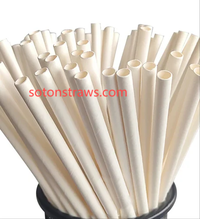Theme Color Chooser
Choose a test user to login and take a site tour.
-
 New Facebook Clone Theme darkgreen
New Facebook Clone Theme darkgreen -
 New Facebook Clone Theme darkorange
New Facebook Clone Theme darkorange -
 New Facebook Clone Theme darkpink
New Facebook Clone Theme darkpink -
 New Facebook Clone Theme darkred
New Facebook Clone Theme darkred -
 New Facebook Clone Theme darkskyblue
New Facebook Clone Theme darkskyblue -
 New Facebook Clone Theme darkyellow
New Facebook Clone Theme darkyellow -
 New Facebook Clone Theme default
New Facebook Clone Theme default -
 New Facebook Clone Theme green
New Facebook Clone Theme green -
 New Facebook Clone Theme orange
New Facebook Clone Theme orange -
 New Facebook Clone Theme pink
New Facebook Clone Theme pink -
 New Facebook Clone Theme red
New Facebook Clone Theme red -
 New Facebook Clone Theme yellow
New Facebook Clone Theme yellow
Blogs » Shopping » The Untold Story Behind Your Bamboo Soton's Straw
The Untold Story Behind Your Bamboo Soton's Straw
-
The global shift toward sustainable alternatives has put eco-friendly straws Factory under intense scrutiny. While consumers celebrate the decline of plastic straws, few consider the human stories behind their bamboo or metal replacements. The reality reveals a stark contrast between small-scale workshops and industrialized production, raising critical questions about what true sustainability should encompass.
In tropical regions where bamboo grows abundantly, cottage industries have emerged to meet Western demand for "natural" straws. These workshops often employ artisans using traditional methods passed through generations. The romantic image of handcrafted sustainability, however, often obscures challenging working conditions—long hours with minimal protective equipment and inconsistent wages. The very materials touted as environmentally virtuous sometimes come at a human cost that sustainability reports rarely mention.
Modern eco-friendly straws factories present a different model entirely. Automated production lines in technologically advanced facilities can maintain strict labor standards while achieving remarkable consistency. The transition from manual craftsmanship to mechanized precision doesn't eliminate jobs but transforms them—replacing repetitive hand-carving with skilled equipment operation and quality control positions. This evolution allows for better wages, safer environments, and scalable production without compromising ecological commitments.
The contrast between these approaches highlights a fundamental tension in sustainable manufacturing. Can mass production ever feel truly "authentic" to consumers who associate sustainability with artisanal simplicity? Conversely, can small workshops realistically meet global demand without exploiting workers? The answer may lie in hybrid models that harness technology while preserving meaningful employment opportunities.
At Soton, we bridge this divide through our eco-friendly straws factory philosophy. Our semi-automated facilities combine robotic precision with human craftsmanship, ensuring both product excellence and ethical working conditions. By investing in employee training and advanced manufacturing technologies, we prove sustainability shouldn't force a choice between planetary and human welfare. Discover how Soton's balanced approach creates straws you can feel good about in every sense.click https://www.sotonstraws.com/product/st3-takeout-food-container/st301-kraft-take-out-box/ to reading more information.

